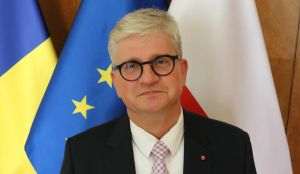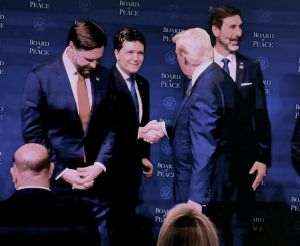Member States' contributions to the European Union budget could increase moderately between 2028 and 2034 given the need for more joint investments at European level for defense and security, said MEP Siegfried Mureşan, rapporteur on the budget, yesterday at a press conference held at the European Parliament.
Siegfried Mureşan stated: "If we expect the European Union to do more for defense and security, we must contribute more to the European budget. I am aware that the governments of the member states are currently in a difficult financial situation and will not be able to contribute more. The level of allocations for the Common Agricultural Policy and the Cohesion Policy must be at the same level, but one area in which allocations must increase significantly is that of security and defense. From discussions with representatives of the EU member states, I have noted that they are willing to contribute more to the Union budget, in order to strengthen common security and defense, especially if the added value at European level is obvious, that is, we will have common defense projects, such as common anti-aircraft defense that cannot be achieved separately by each member state. That is why I am sure that the member states will accept moderate increases in contributions to the European Union budget."
He stated that in the long term, the aim is to purchase as much military equipment as possible from EU member states, but that in the short term - in order to increase the security and defense of the community bloc and in terms of compliance with the armed forces' equipment programs - purchases will also be made from third countries, mainly from the USA.
"In the short term, there is flexibility for the 150 billion euros that the European Commission borrows from the financial markets and will make available to the member states. In the long term, the money can only be spent on joint European equipment projects, based on transnationality, on the cooperation of at least two member states and which help to equip the two states and even other states in the European Union", mentioned Siegfried Mureşan.
Mr. Mureşan's statements were made in the context in which the European Parliament voted yesterday on the priorities for the EU's multiannual budget for the period 2028-2034, based on the report prepared by Siegfried Mureşan, EPP Vice-President.
"In the adopted document, we proposed an appropriate increase in the European Union's multiannual budget for the period 2028-2034, taking into account the new priorities, such as defending and strengthening the economy, but without affecting traditional areas, such as agriculture and cohesion. In the current economic context in Romania, in which we need to reduce the deficit and public debt, it is important to continue to benefit from European funds, which are essential for economic growth. Therefore, I supported that the areas in which we receive the most European funds, such as agriculture and cohesion, should continue to be financed at a high level", said MEP Siegfried Mureşan after the vote in the European Parliament.
The report voted on yesterday sets out Parliament's budgetary priorities ahead of the presentation of the EU's draft multiannual budget 2028-2034, which is due to be published by the European Commission in July. After the formal presentation of the draft report, budgetary negotiations will follow, with the European Parliament ensuring that the priorities voted on today are included in the final form of the multiannual budget.
Siegfried Mureşan stated: "The adoption of this budget will be a long-term process. The European Parliament decided that it wants to simplify access to European funds, because beneficiaries complained about bureaucracy, cumbersome procedures in accessing funds and different rules from one program to another. We then want a flexible budget, because in seven years unforeseen events can occur, as was the case in the period 2020-2027, when the Covid-19 pandemic occurred, the invasion of Ukraine by the Russian Federation, the energy crisis, etc. However, in order to react quickly, such a flexible budget is needed, some funds set aside to be allocated urgently in such situations. Then people expect security and safety, and as such the first priority of the budget for the period 2028-2034 is this. The second priority is the economy, because people want us to have a competitive, strong economy that provides them with well-paid jobs. We will continue to support an ambitious common agricultural policy and cohesion policy, as they have proven their importance over the past decades. The allocations from the common agricultural policy generate rural development, guarantee well-paid jobs in rural areas and ensure the food security. That is why farmers will be one of the priorities of the European Parliament in drawing up the budget for the period 2028-2034. We cannot expect the European Union to do more with the same or a smaller budget. The European Parliament's position is to defend the current allocation levels for Cohesion Policy and the Common Agricultural Policy and to allocate appropriate budgets, with an increase for the field of defense and security, where I expect allocations to increase compared to the period 2020-2027".
He also said that the European Parliament wants a budget in which local authorities, city halls and county councils play an important role, "because the absorption of European funds by the local environment is less politicized". Therefore, the funds must reach the citizen and not be politically allocated by the governments of the EU member states.

















































